
Filter News
Area of Research
- (-) Climate and Environmental Systems (1)
- (-) Fusion and Fission (19)
- (-) National Security (10)
- (-) Supercomputing (35)
- Biology and Environment (34)
- Biology and Soft Matter (1)
- Clean Energy (34)
- Computational Biology (1)
- Electricity and Smart Grid (2)
- Functional Materials for Energy (1)
- Fusion Energy (5)
- Isotopes (1)
- Materials (13)
- Materials for Computing (3)
- Neutron Science (7)
- Nuclear Science and Technology (9)
- Quantum information Science (5)
News Type
News Topics
- (-) Climate Change (17)
- (-) Coronavirus (9)
- (-) Fusion (19)
- (-) Grid (6)
- (-) Molten Salt (1)
- (-) Quantum Science (12)
- 3-D Printing/Advanced Manufacturing (7)
- Advanced Reactors (4)
- Artificial Intelligence (28)
- Big Data (16)
- Bioenergy (7)
- Biology (11)
- Biomedical (8)
- Biotechnology (2)
- Buildings (4)
- Chemical Sciences (5)
- Composites (1)
- Computer Science (56)
- Cybersecurity (12)
- Decarbonization (6)
- Energy Storage (6)
- Environment (19)
- Exascale Computing (15)
- Frontier (17)
- High-Performance Computing (29)
- Isotopes (1)
- ITER (3)
- Machine Learning (15)
- Materials (11)
- Materials Science (14)
- Mathematics (1)
- Microscopy (4)
- Nanotechnology (8)
- National Security (27)
- Net Zero (2)
- Neutron Science (10)
- Nuclear Energy (26)
- Partnerships (2)
- Physics (6)
- Quantum Computing (11)
- Security (8)
- Simulation (14)
- Software (1)
- Space Exploration (2)
- Summit (22)
- Sustainable Energy (8)
- Transportation (5)
Media Contacts
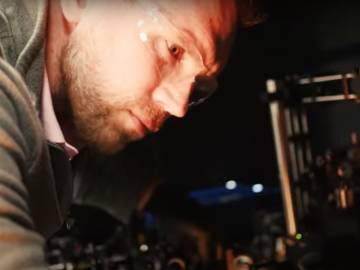
ORNL manages the Innovation Network for Fusion Energy Program, or INFUSE, with Princeton Plasma Physics Laboratory, to help the private sector find solutions to technical challenges that need to be resolved to make practical fusion energy a reality.
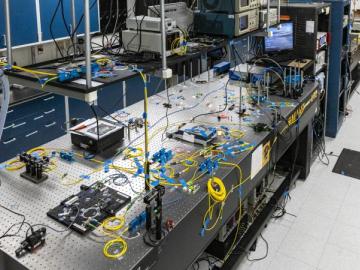
A rapidly emerging consensus in the scientific community predicts the future will be defined by humanity’s ability to exploit the laws of quantum mechanics.
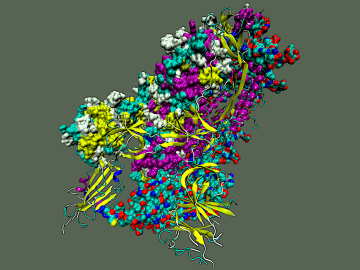
To explore the inner workings of severe acute respiratory syndrome coronavirus 2, or SARS-CoV-2, researchers from ORNL developed a novel technique.
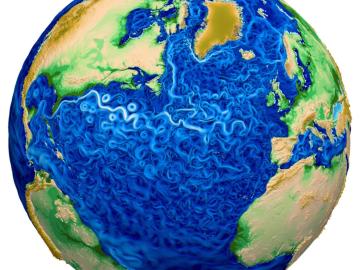
A new version of the Energy Exascale Earth System Model, or E3SM, is two times faster than an earlier version released in 2018.
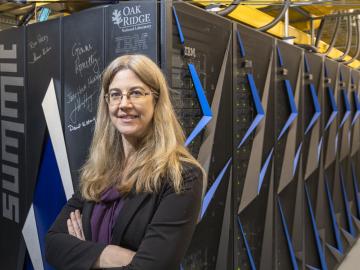
The world is full of “huge, gnarly problems,” as ORNL research scientist and musician Melissa Allen-Dumas puts it — no matter what line of work you’re in. That was certainly the case when she would wrestle with a tough piece of music.
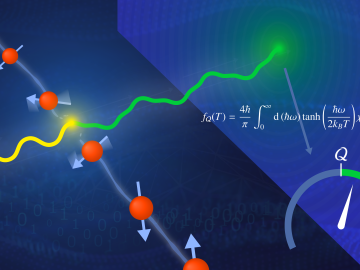
A team led by the U.S. Department of Energy’s Oak Ridge National Laboratory demonstrated the viability of a “quantum entanglement witness” capable of proving the presence of entanglement between magnetic particles, or spins, in a quantum material.
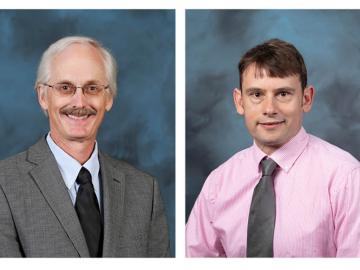
ORNL's Larry Baylor and Andrew Lupini have been elected fellows of the American Physical Society.
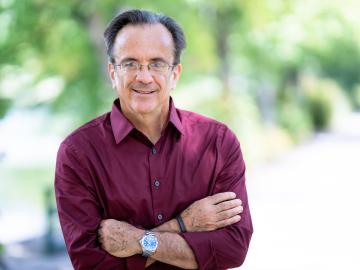
Diego Del-Castillo-Negrete, a distinguished staff member in the Fusion Energy Division, was cited for Outstanding Technical Achievement – National Laboratory. He will be recognized during the GMiS annual conference, which will be held virtually Oct. 11-22. The HENAAC awards program is in its 33rd year.

An international problem like climate change needs solutions that cross boundaries, both on maps and among disciplines. Oak Ridge National Laboratory computational scientist Deeksha Rastogi embodies that approach.
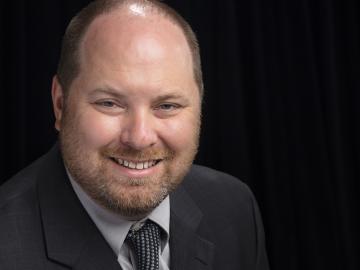
Joseph Pickel has been elected a 2021 fellow of the American Chemical Society, or ACS. Pickel supports the Fusion and Fission Energy and Sciences Directorate as environment, safety and health


